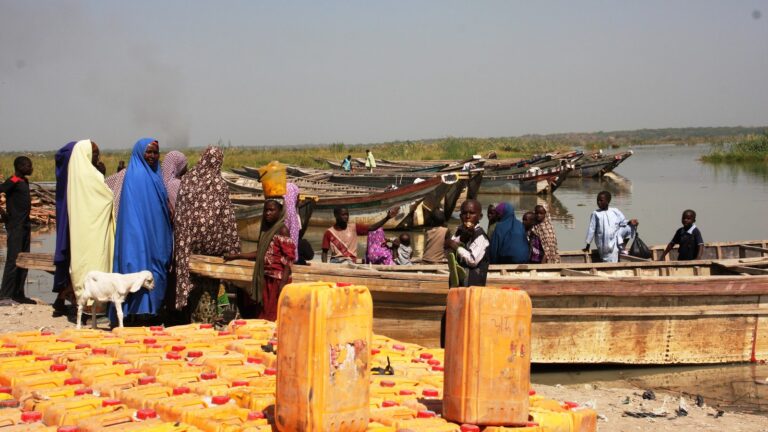As Boko Haram keeps making the news headlines and with 10.7 million people in urgent need of humanitarian assistance, the crisis in the Lake Chad basin is alarming. Drought, climate change, corrupt governance and religious extremism are only some of the overlapping challenges that the international community faces.
“I believe that the tragedy of Boko Haram is inextricably linked to poor water management,” said Amina J. Mohammed at the World Water Week in Stockholm last August. The Deputy Secretary-General of the United Nations and previously Nigerian Minister of Environment was referring to the complex humanitarian crisis in the Lake Chad Basin. The lake, situated in the Sahel region, is shared by Cameroon, Chad, Niger and Nigeria, and its basin extends to Algeria, Libya, and Sudan, impacting the livelihoods of nearly 40 million people.
Since the 1960s, Lake Chad’s surface area has shrunk by over 90 per cent. Yet, a recent study found that the lake size has not decreased since the 1990s but remained stable in the past two decades. Nevertheless, climate change is having profound adverse impacts on the conflict and climate projections show that weather conditions will become more extreme and unpredictable. In addition, the Logone and Chari rivers flowing into Lake Chad are heavily exploited for irrigation. This makes the lake highly sensitive to fluctuations in water inflow and temperature that affects evaporation.
The populations of the Sahel region are known to be resilient. They have had to cope with the general cyclical climate pattern and its variability, where three seasons define where water can be found and what can be grown. They have done so through diversification and semi-nomadic lifestyles as well as trade and seasonal migrant work. Yet, the current web of causes is complex and has undermined such resilience strategies. It encompasses conflict, water and environmental mismanagement, climate change and population growth.
As farming and pastoral livelihoods suffer, the region has become a recruiting ground for Islamic extremism with the militant group Boko Haram. The group’s ambition is to impose a stricter interpretation of Sharia laws to fight the corruption resulting from Western colonial education. Since 2009, the Boko Haram insurgency and the government’s military response have killed tens of thousands of civilians and displaced millions across the Lake Chad region. It has also disrupted all humanitarian activities taking place in the Lake Chad Basin, where an estimated 10.7 million people need humanitarian assistance.
These overlapping crises are concerning. Key donors have set up the Oslo Consultative Group on the Prevention and Stabilization in the Lake Chad Region in order to coordinate their response. At the regional level, the Lake Chad Basin Commission and the African Union Commission have adopted a regional stabilization strategy. With Boko Haram still making the news headlines, the conflict seems far from resolved, but the militant group will unlikely be defeated on the battlefield alone. The international community agrees that the response has to be multidimensional and target the drivers of insecurity of the region, including poor and corrupt governance, drought and environmental degradation. Also, resilience-building programs should focus on equitable water management while empowering local populations and building social cohesion. Or religious extremism will win.


